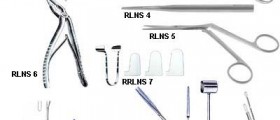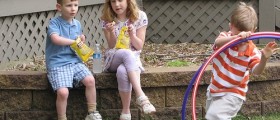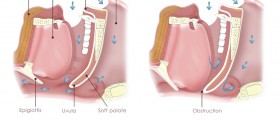
Nosebleeds in toddlers are considered common and there is usually no need for parents to be worried. Yes, it may be frightening but in majority of cases nosebleeds stop spontaneously and even though they might reoccur one should be familiar with certain maneuvers that can stop and reduce the bleeding. Still, in some cases nosebleeds in toddlers may be associated with serious underlying conditions and this is why parents are supposed to consult a child's pediatrician if the condition occurs frequently or in case of heavy and uncontrollable bleeding.
Causes of Nosebleeds in Toddlers
In majority of cases nosebleeds are caused by certain environmental changes. Namely, dry air, low humidity as well as cold may affect the blood vessels inside the nasal cavity and cause spontaneous rupture and subsequent bleeding. Furthermore, bleeding may be induced by certain irritants such as chemical fumes or smoke. Infections of the upper respiratory tract (sinusitis, rhinitis etc.) as well as allergies are also associated with nosebleeds in toddlers. Toddlers commonly pick their noses and tend to put objects in the nasal cavity. This way they increase the chance of damaging the mucous membrane of the nose and the blood vessels. And finally, frequent nosebleeds in toddlers may be a symptom of some serious medical conditions such as leukemia, high blood pressure, hemophilia etc.
Risk Factors and Nosebleeds in Toddlers
If a family lives in a dry climate or even at a high altitude the toddler is at increased risk to suffer from frequent nosebleeds. There are a few more risk factors associated with frequent nosebleeds in toddlers and one of them is overexposure to different chemicals, irritants and environmental pollutants. Even excessive usage of nasal decongestant sprays is related to nosebleeds.
Treatment for Nosebleeds in Toddlers
It is essential to consult a pediatrician in case the bleeding does not stop within 20 minutes or more or if the bleeding is caused by an injury. Furthermore, excessive bleeding especially if it occurs frequently must be reported as soon as possible.
The bleeding can be easily stopped if the toddler's nose is pinched and both of the nostrils kept closed for around 5 to 10 minutes. The toddler is supposed to sit upright and lean forward. This maneuver prevents swallowing of the blood and reduces blood pressure in the nose. The child must be calmed because crying can only cause increase in bleeding. And finally, after the bleeding has stopped parent should not allow their children to blow or pick their noses for at least a few hours. Physical exertion is forbidden as well.




_f_280x120.jpg)












Your thoughts on this
Loading...